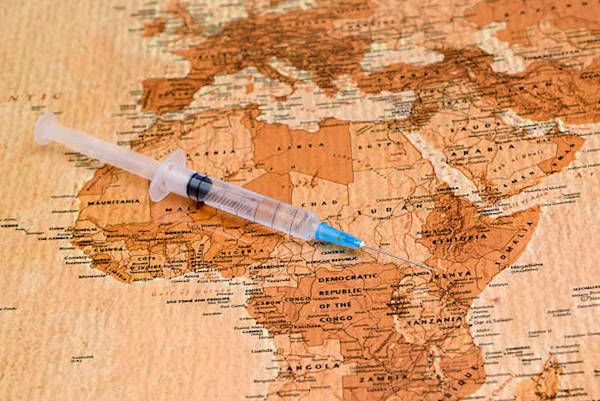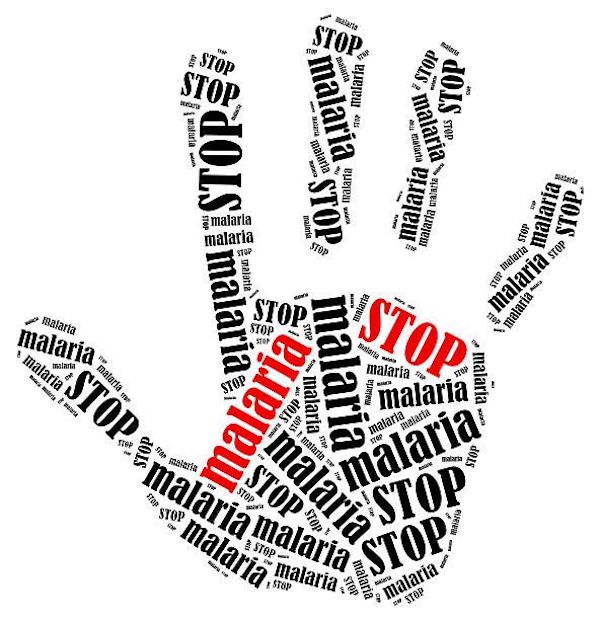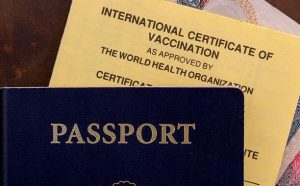Ghana: Travel Vaccines And Malaria Information

Are you travelling to Ghana ? If your answer is YES then you need to read the Travel Vaccines And Malaria Information below.
Ghana requires yellow fever vaccination for all travelers
Other vaccines: Depending on your itinerary, your personal risk factors, and the length of your visit, your health care provider may offer you vaccination against hepatitis A, typhoid, hepatitis B, rabies, meningococcal meningitis, influenza, or a one-time polio booster if you haven’t previously received one for travel.
Cholera vaccine is not indicated for travelers except for the special circumstance of aid and refugee workers.
Routine immunizations, such as those that prevent tetanus/diphtheria or “childhood” diseases, should be reviewed and updated as needed.
READ ALSO: TRAVEL AFRICA
International health authorities consider Ghana to be a yellow fever “infected” country because human cases of the disease have been reported in these regions: Upper East, Upper West.
Authorities also consider it “endemic” because the potential for disease transmission exists in areas that may not currently report human cases.
Malaria: Risk (predominantly P. falciparum) exists throughout the year in the whole country. Medicines that protect against malaria in this area include mefloquine (Lariam), doxycycline , or atovaquone/proguanil (Malarone).
The best drug for you depends on your itinerary and on a number of personal factors that should be discussed between you and your health care provider.

RECOMMENDED WORLD NEWS
Antimalarial drugs may not be available in this country, and travelers staying longer than 1 month should consider carrying a treatment dose of atovaquone/proguanil or quinine in case their protective medicines fail.
Because no malaria drug is 100% effective, if you have traveled in an area of malaria risk, seek immediate medical attention for any fever or flu-like illness occurring within 3 months of your return home.
Be sure to tell your health care provider your travel history.
OTHER HEALTH ISSUES
Insect-borne diseases: Mosquitoes and flies transmit a variety of diseases in this country, including dengue fever, yellow fever, malaria, African trypanosomiasis, and onchocerciasis.
Personal protective measures are extremely important since insects cannot be avoided.
Food- and water-borne diseases: Quite a few diseases, including hepatitis A and typhoid fever, are transmitted by unsanitary food handling procedures and contaminated water.
Food and beverage precautions are essential in order to reduce chance of illness. Anti-diarrheal drugs may be prescribed by your provider.

MORE GHANA NEWS
Tuberculosis is common in all developing countries. However, Ghana has a prevalence of over 100 cases per 100,000 population, the highest WHO risk category.
Travelers planning to stay more than 3 months should have pre-departure PPD skin test status documented. Travelers should avoid crowded public places and public transportation whenever possible. Domestic help should be screened for TB.
- Schistosomiasis is present and is transmitted in freshwater lakes and rivers by larvae which penetrate intact skin.
- Sporadic, rare Lassa fever activity occurs. Transmission is via contact with infected rodents.
Hospitals: Ghana has many public and private hospitals as well as a pharmacy at every corner. Medical care varies and most government hospitals are affected by water and light shortages.
All hospitals require payment upfront before treatment, no matter how sick you may be. In rural areas in particular it can be extremely difficult to access good healthcare, especially emergency healthcare.
OTHER SAFETY RISKS
Road accidents: Ghana’s roads record a high number of road traffic accidents each year, especially since the addition of new, major highways to the road network.
Driving is often reckless and many drivers speed.
Try to avoid ‘trotros’, the minibuses which serve as the country’s main mode of transport, and be choosy when hopping into a taxi – try not to board vehicles which look as though they are falling apart.
Source: Ghana Heath Info|Ghana News (Visit ghanahealthservice for all the latest updates)


